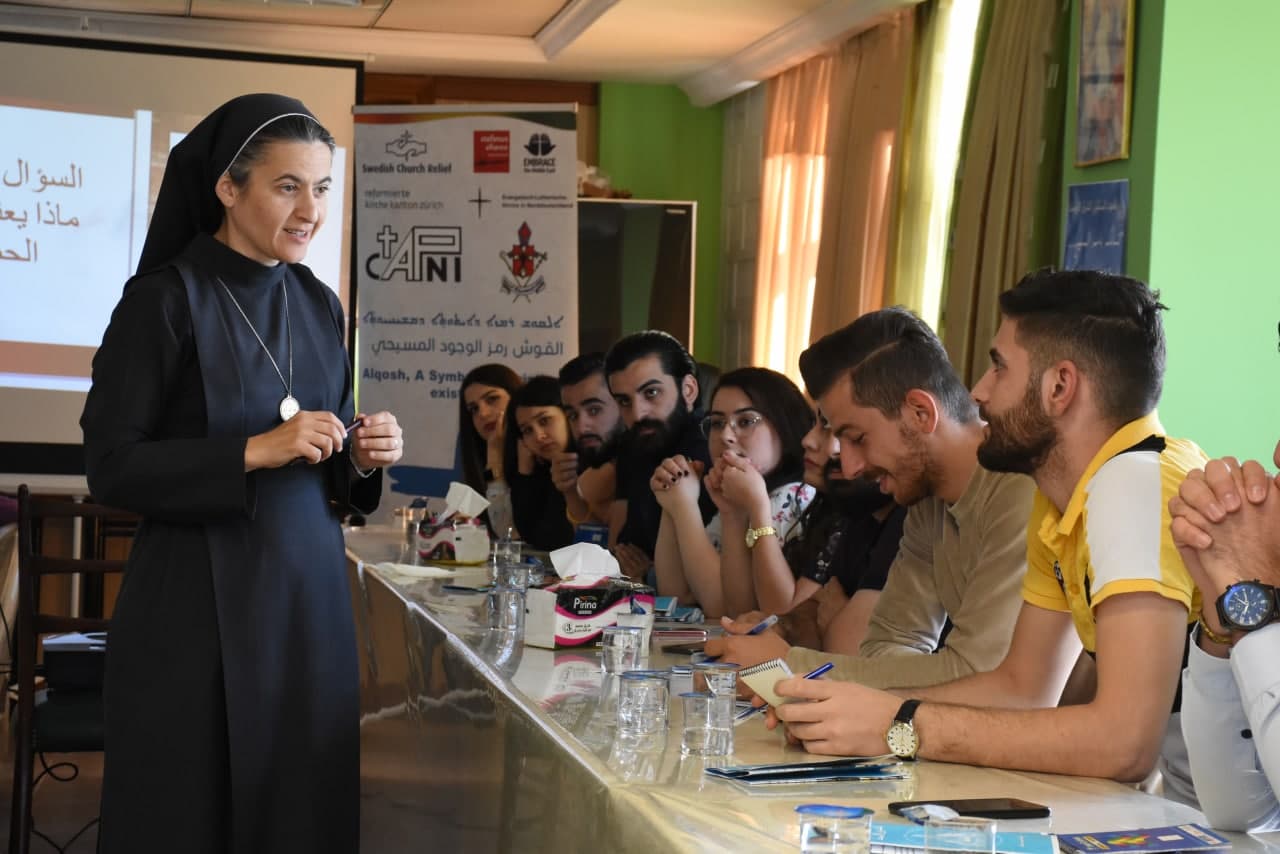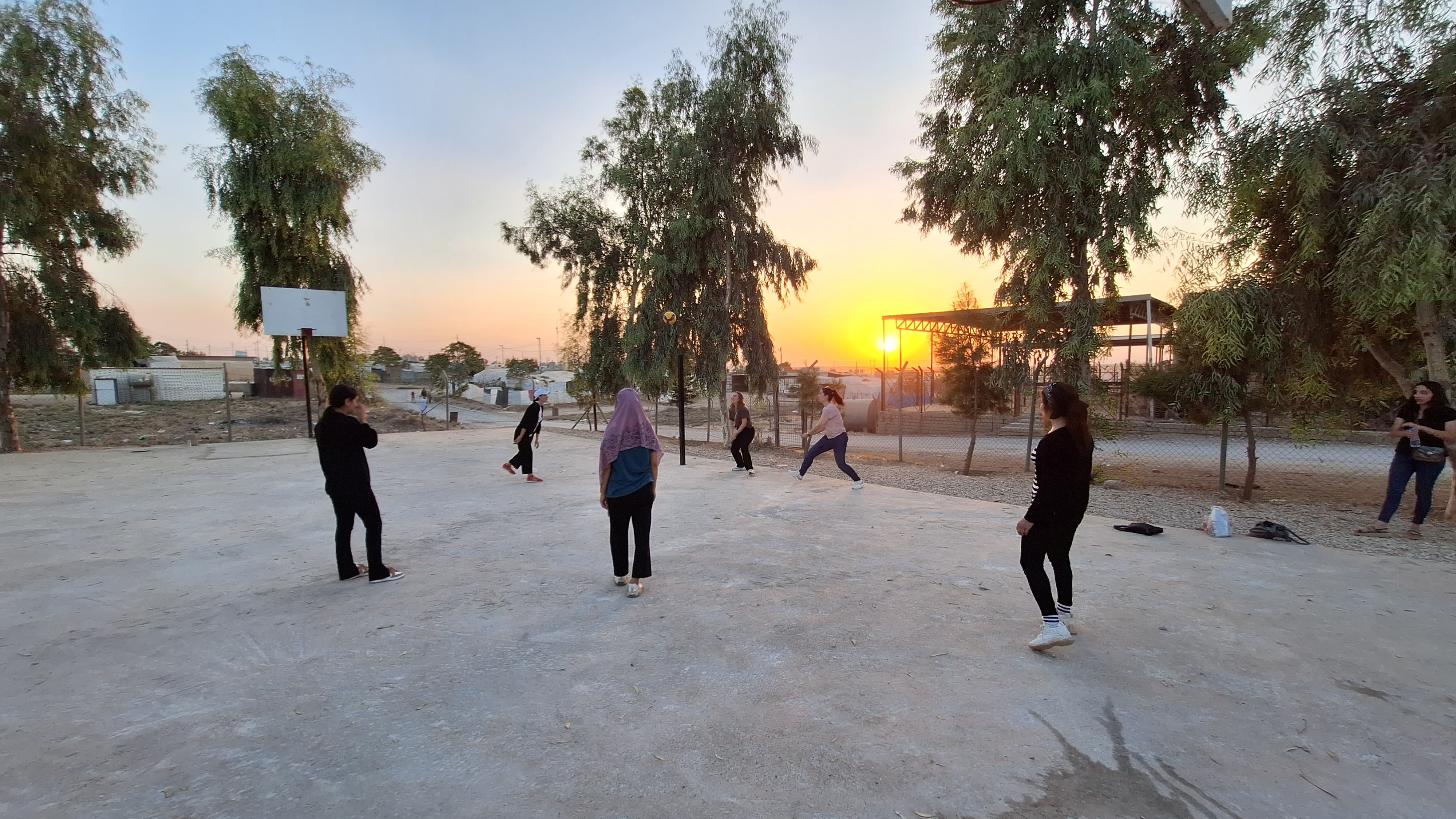Iraq
Ever since ISIS invaded Mosul in 2014, Stefanus Alliance has provided aid to people who have fled for the sake of their faith. In 2019, the effort was expanded.
Iraq: the heartland of civilizations and religions
Throughout history, Iraq has been the heartland of a number of great civilizations and empires, such as Babylonia. The Christians here have roots dating back to the first centuries. They themselves claim that Christianity was brought to Iraq in the first century by the apostles Thomas and Thaddeus of Edessa, who also belonged to the inner circle of Jesus. Throughout history, the Christian minority has repeatedly experienced religious and ethnic seduction, including a series of massacres.
After an American-led invasion overthrew Saddam Hussein's regime in 2003, extremism and terror have once again been given free rein in large parts of Iraq. Churches were bombed, Christians were kidnapped and killed and their lives threatened. This led to many Christians leaving the country, while others moved from the Baghdad area to the Christian villages and core areas in the north of the country, where it was relatively safer until the ISIS invasion in the summer of 2014. Then many had to flee again, including Christians, Shia, Yazidis and Sunni Muslims who disagreed with ISIS's ideology.
The Christians in Mosul and the surrounding Christian villages lost everything when ISIS attacked; houses and homes, work and income, possessions. More than a hundred thousand Christians became internally displaced in the Kurdish areas of northern Iraq. Some live in makeshift containers-refugee camps, others have rented a room. Here they are protected by the Kurdish authorities and have been allowed to practice their faith in peace. However, the struggle to survive is hard. It is very difficult for them to find work in Kurdistan and to get money for rent, food and other necessities. Many of the Christian refugees have now left Iraq, exhausted after decades of persecution. In 2003, Iraq had approximately 1.3 million Christians, and today church leaders estimate that between 200,000 and 250,000 remain.
After ISIS was driven out of Mosul and the Christian villages on the Nineveh Plain in spring 2017, some Christian IDPs have begun to return home. The vast majority have given up Mosul, but several are trying to see if they can rebuild their lives on the Nineveh Plain. Not all Christian families dare to return. They fear for their own safety, and it costs a lot to rebuild destroyed houses and infrastructure such as roads and electricity, and it is difficult to earn a living. Few of the Yazidis have dared to return to destroyed villages around Mount Sinjar. There are also military tensions between militias and Turkish and Iraqi government forces.
The refugees of faith in Iraq still need our support and prayers.
Stefanus Alliance wants to help alleviate distress and give new hope to the many who have fled and are trying to find a new life. We also want to help the Christian minority can be able to stay in the Middle East.
Stefanus Alliance partners in Iraq:
CAPNI: Rebuilding after war and ISIS
ISIS expelled Christians and Yazidis from the Nineveh Plain in 2014. Now the inhabitants of villages ISIS never managed to take need a new basis for living in Iraq.
The Stefanus Alliance partners with the aid organization Capni - Christian Aid Program Northern Iraq. The Stefanus Alliance assists in providing jobs in Christian villages. The villages are located just outside the area on the Nineveh Plain where ISIS expelled Christians and Yazidis in 2014. The project, which is supported by several church organizations, also provides education for children and supports work for church unity.
Very close to the villages, Kurdish forces repeatedly managed to stop IS attempts to penetrate the barriers and expand the reign of terror - the so-called caliphate. The inhabitants had fled persecution in Baghdad after the US invasion in 2003, and then had to flee again when ISIS attacked Mosul and then the villages on the Nineveh Plain in 2014. The houses were not destroyed by ISIS as ISIS never managed to penetrate them, but the road to Mosul and their workplaces in Mosul were destroyed by ISIS. Now the residents need a new foothold.
Jobs are to enable people to support themselves. This means that they can continue to stay and live instead of moving or fleeing. When they receive loans through Capni to start up, the repayment will in turn provide other opportunities to earn a livelihood. Creating jobs is also a way of creating meeting places for Christians and Muslims after ISIS created a deep mistrust among people who had to flee. The mistrust is very deep and very easy to understand.
Capni has a number of other projects as well, in villages in the Nineveh Plain and for internally displaced people who have not returned home. They help both Christians, Yazidis and Muslims.

ZALAL Life: Sports for Yazidi women in refugee camp
In 2014, IS carried out major attacks in northern Iraq, one of the aims of which was to exterminate or remove the religious minority groups. The Yazidi population was subjected to particularly gruesome attacks. Several thousand men were killed, while the women who were taken were sold as sex slaves and forced to convert to Islam. Those who survived the attacks are afraid of what will happen to them if they return to their villages, and are therefore still living in refugee camps near Dohuk. Most of those living in the camps are women and children, and many have lived there for more than eight years.
Our partner, Zalal Life, has for several years offered trauma healing, vocational training and other educational opportunities to people in the camps, and has developed a good and trusting relationship with them. Some years ago, they were approached by women in the camps with a request to initiate a project that could facilitate more physical activity, which is limited under the prevailing conditions.
With Stefanus Alliance's help, the women now have the opportunity to learn to play basketball and volleyball, participate in training sessions twice a week, organize themselves into teams and compete against other teams. All of this takes place at the camp, where Zalal Life has built a sports ground. The opportunity to participate in physical activity is part of the trauma-healing program, and will contribute positively to better physical and mental health among the women in the camps, and perhaps also open the door for the most talented to pursue sports and join one of the Iraqi women's national teams.

Our work
The Stefanus Alliance cooperates and works through local churches, organizations and individuals.